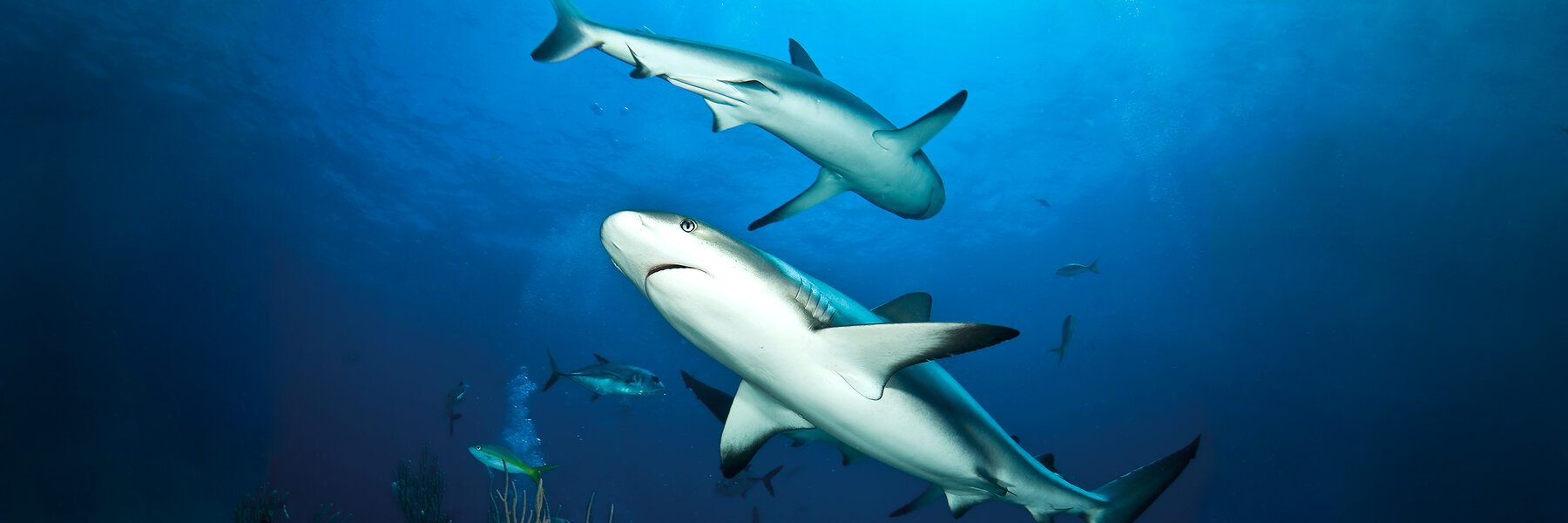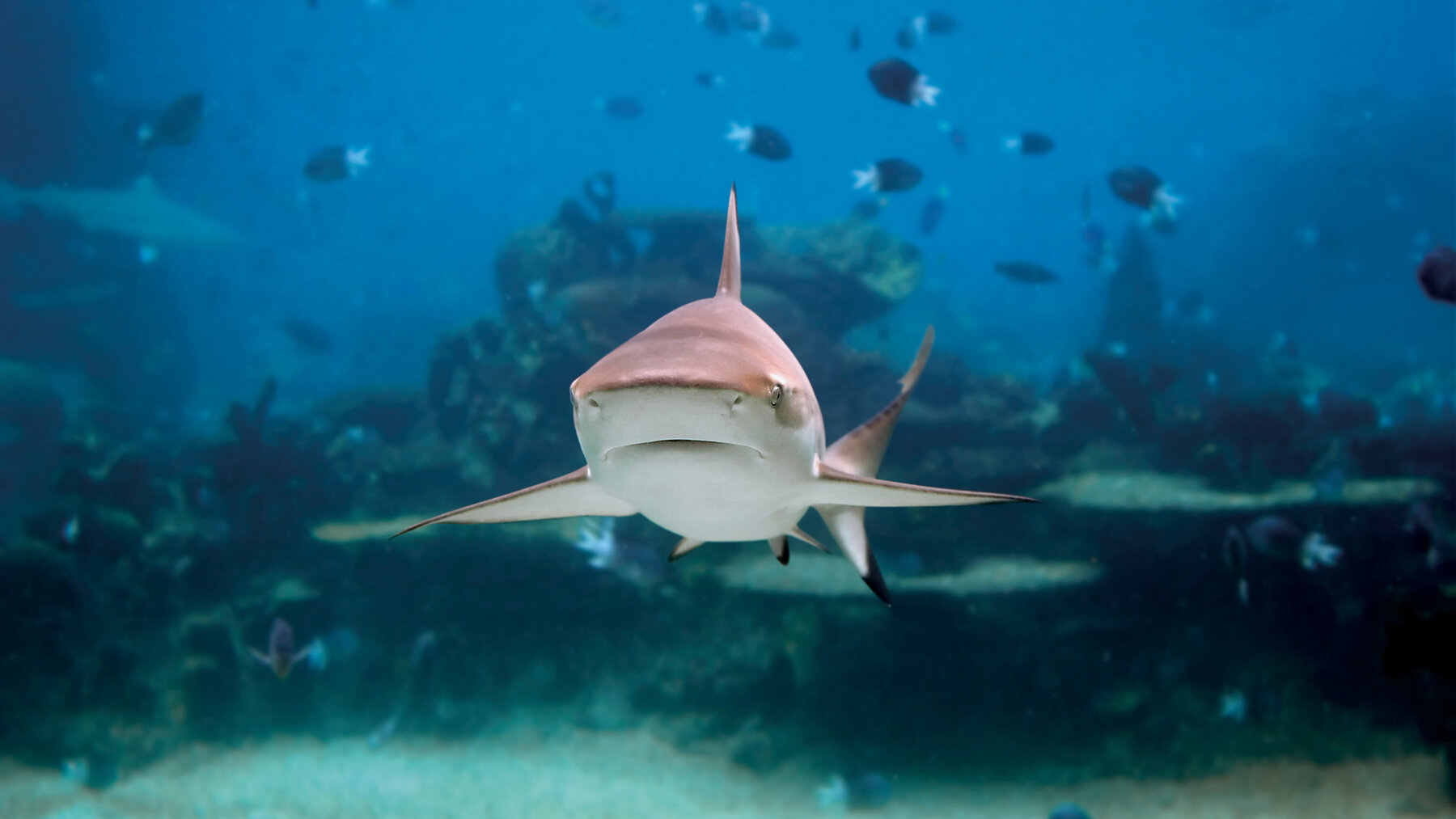
Blacktip reef sharks
Carcharhinus melanopterus
The name 'blacktip reef shark' comes from its black-coloured dorsal fin tip. With a length of up to two metres, it belongs to the group of medium-sized sharks and impressively does its rounds around the shark tank of Aquarium Berlin with, among others, Caribbean nurse sharks.
What you should know about blacktip reef sharks
The blacktip reef shark has its home in the Indian Ocean and is predominantly spread along the South African coast to the Red Sea as well as along the Indian coast. There they generally feed on fish and invertebrates, but also small species of rays or sharks cannot claim full safety from them.
Characteristics
- Origin
Indian Ocean, Indo-Pacific
- Habitat
Shallow water, along the reefs
- Diet
Fish and invertebrates
- Status
vulnerable
- Size
up to 1.80 m
- Weight
up to 20 kg
- Gestation period
Live-bearing after a gestation period of approx. 9 months
- Achievable age
over 30 years
Threat Categories of IUCN


The daydreamer in the shark tank
Those who believe that sharks roam restlessly during the day in search of food are mistaken. The wisdom of 'carpe diem' is used especially by the tropical nurse sharks, who live in groups, when it comes to sleeping. During the day they are happy to rest in caves or under ledges or even just sleep how we would understand to be 'normal'.
Agile hooked club & the shock of the keepers
The blacktip reef shark is considered extremely agile. The visitors to Aquarium Berlin can also observe its sudden turning maneuvers. It is not uncommon for our submerged keepers to be startled when cleaning the panes. It's no wonder, the sharks approach them at speeds of up to 30 km/h and only turn in another direction right before collision – enough to make anyone wince.
Is it true that ...?
... Shark teeth regrow on a life-long basis? Practical or what? Shark teeth are not firmly anchored in the jaw, but only loosely attached to the softer jaw cartilage. Mother Nature therefore equipped all shark species with a set of teeth, which constantly 'reload' – a so-called set of revolver teeth. As a result, they don't just have one row of teeth, but many in succession. If a shark tooth falls out or breaks off, it is succeeded by a new tooth from the jaw and within a few weeks, the gap is filled again.

